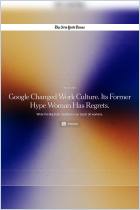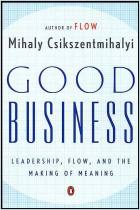Melden Sie sich bei getAbstract an, um die Zusammenfassung zu erhalten.

Melden Sie sich bei getAbstract an, um die Zusammenfassung zu erhalten.
Carolyn Chen
Work Pray Code
When Work Becomes Religion in Silicon Valley
Princeton UP, 2022
Was ist drin?
Has Silicon Valley’s corporate secularization led its workers to abandon religion and community?
Recommendation
Has work replaced religion in Silicon Valley? Sociologist Carolyn Chen asks if the Valley’s long days, free cafeterias and mindfulness workshops have replaced church and community. She explores why organized religion can’t seem to take root there and how tech firms use spiritual movements to feed profits. Within this overview, she offers a particularly strong case of watered-down religion in the trivialization of sacred Buddhist practices. Of course, as Robert Putnam reported in Bowling Alone in 2009, Silicon Valley isn’t the only cause of declining community and religious observance – even in Silicon Valley. And Chen herself would need a crystal ball to know if techies will keep worshipping work as big tech lays off staff and quits serving free lunches.
Summary
About the Author
Carolyn Chen, an associate professor of ethnic studies at the University of California, Berkeley, also wrote Getting Saved in America: Taiwanese Immigration and Religious Experience.





















Comment on this summary